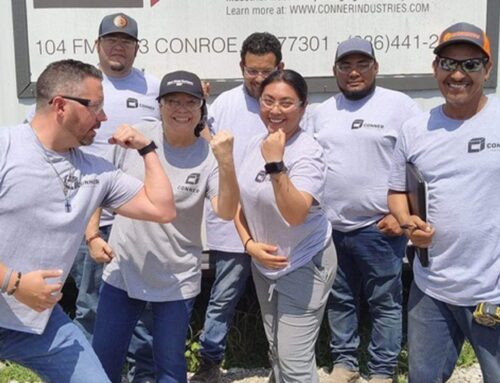Labor is tight everywhere right now, and that means that a lot of manufacturers are doing more with less. When you can’t hire more people to do the job, then the people you’ve got sometimes have to do more to get the job done.
It’s an unfortunate side-effect of a tight labor market.
It also makes it so much more important that everyone in your company pull together to get everything covered until the labor market improves. And that brings us to the four people that we all have working at our company, but nobody likes all that much.
Somebody, Everybody, Anybody, and Nobody. You’ve probably heard this story about them before:
“There was an important job to be done, and Everybody was sure that Somebody would do it. Anybody could have done it, but Nobody did it. Somebody got angry about that because it was Everybody’s job. Everybody thought Anybody could do it, but Nobody realized that Everybody wouldn’t do it, so it ended up that Everybody blamed Somebody when Nobody did what Anybody could have done.”
What this little story boils down to is the “that’s not my job” mindset, and how it hurts everyone on your team whether there’s a labor shortage or not. That kind of mentality can really zap your team, and hurt productivity and efficiency, but how do you turn it around?
Help Employees Understand the Bigger Picture
The one thing that good employees all have in common is that they want to do good, quality work that makes a difference. You can help employees feel like they are making a difference by both helping them to understand how your company impacts others and pointing out how their job impacts your company mission.
Ultimately, if the “that’s not my job” attitude exists within your organization, then it’s likely to be a company culture problem more than an individual problem. That’s really part of helping employees understand your company’s big picture. It’s about creating that big picture for everyone in the company and molding your company culture so that everyone feels like they are part of your mission.
Your company culture needs to be so inclusive that employees want to step up during challenging times. They know that they’re part of something bigger and they don’t want to let the mission down.
Give Employees Ownership
Good employees want to feel as if their work is appreciated by the organization and an important part of the mission. They want to feel like they are part of the solution. If they feel overwhelmed or unappreciated, they can very quickly feel that their contributions to the company don’t matter.
If you hear one of those good employees utter the phrase, “that’s not my job,” then you know that what your employee is really telling you is that they feel no ownership over what they do for your company and they lack empowerment. While sometimes employees that feel this way are just a poor fit for their role in your company, it often comes back again to company culture.
Everyone on the team needs to feel that their contributions are valued and important to the success of the mission. Whether it’s someone who works on the plant floor or in the corporate office, we all like to feel like what we do matters to others.
The Difference Between Role and Job
When conflicts arise and employees feel that they are being asked to do something that falls outside of the scope of their job, it’s important for them to realize one important thing. Ultimately, everyone inside your organization has the same job – to help accomplish the mission of the company. Whether it’s your CEO or someone on the plant floor, you all have the same job. It’s just your roles that are different. You’re all on the same team.
Although the difference between job and role might just sound like semantics, it’s an important part of changing your company culture to create an environment where everyone chips in where needed. Sometimes that means stepping out of your particular role in the company to accomplish the mission.
It’s all about pulling together as a team, and the job always comes before the role.
Wrapping It Up
We all know that it’s a tough labor market right now, and a lot of companies are asking their employees to do more than usual. Times like this make it even more important that your employees pull together as a team to get your company mission accomplished.
In large part, your company culture is responsible for helping employees feel like a team and go beyond the scope of their normal duties to get the job done. If you’re hearing “that’s not my job” from employees throughout your organization, it’s not the attitude of a few bad apples. It’s a serious problem with your company culture that must be addressed.


![[PRESS RELEASE] Conner Industries Announces Major Guardian Packaging Expansion](https://conner.b-cdn.net/wp-content/uploads/2024/10/Guardian-Packaging-Expansion-500x383.jpg)
![[PRESS RELEASE] Conner Industries Announces Website Dedicated to Integrated Packaging Division](https://conner.b-cdn.net/wp-content/uploads/2024/05/Conner-Packaging-Blog-500x383.jpg)


